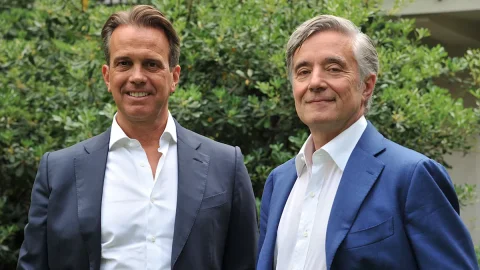“Alarms are sometimes raised about the effects that further rate hikes officers might have on our economy they are not shareable”. The Governor of the Bank of Italy said it clearly, Ignazio Visco, speaking in front of the audience of the Ambrosetti club.
Visco: "Italy capable of managing the monetary tightening, but the ECB evaluates times and intensity"
According to the number one of Via Nazionale, not only are the alarms unfounded, but "our country is capable, continuing on the path already undertaken of prudent policies and reforms, of handle the consequences of a gradual but necessary monetary restriction".
Visco has dampened the hopes of those who hope that the monetary tightening will end in a short time. In his opinion further rate hikes by the ECB “I am in things” but you need to proceed with a cautious approach in order not to risk "restricting too much", he said, confirming himself in the "party of 'doves", in view of the next monetary policy meeting in Frankfurt.
"In Evaluate intensity and timing of monetary transmission - continued the Governor - the best way to avoid mistakes in both directions is that of a prudent approach that takes into account from time to time all the elements available to identify the most appropriate step to take".
Visco remarked i two opposing risks which the action of the ECB must take into account. On the one hand that of restrict too much and to cause a recession and on the other to not acting forcefully enough to curb the race of inflation with the serious risk of disengaging medium- to long-term inflation expectations from the 2 per cent objective.
“There is debate – he argues – about the relative magnitude of these two risks. Valuations of a probabilistic nature – evidently, in a context of high uncertainty like the current one, largely subjective – are particularly difficult today. I am inclined to assign similar weight to both risks; that is, I don't see why a possible error of evaluation in one direction or the other should be privileged. In other words, I am not convinced that today it is better to risk restricting too much rather than too little”. The number one of via Nazionale then added: “I believe that coConsider today the two risks in the same way is in line with the objective of price stability – symmetrical, upwards and downwards – that we must achieve in order to fulfill our mandate”.
Italy's GDP at pre-Covid levels, gas price uncertainty
Looking at the recent past, the governor of the Bank of Italy recalled how in 2022 the Italian GDP grew by a percentage close to 4% "fully recovering pre-Covid levels" even if, compared to the peak reached at the beginning of 2008, "the product is still more than three percentage points lower" and at the end of the year the economy weakened.
What will happen in 2023? The estimates on the growth of the Italian economy for 2023 (+0,6%, ed) indicated in the latest Economic Bulletin of the Bank of Italy are purely indicative due to the strong uncertainty connected above all to the evolution of the war in Ukraine, he underlined Visco, citing as an example the trend in the price of gas in the last two years: from 10 euros per megawatt hour in January 2021 up to the "peak" of 350 euros in August 2022 and the subsequent drop to the current 60 euros. “In short, it seems to be on the roller coaster – stated Visco in his speech – and in these conditions it is not only difficult to make macroeconomic forecasts but also, for households and businesses, spending and investment programs of particular intensity. Indeed, under these conditions, the formulation of alternative scenarios necessarily rests on relatively fragile hypotheses regarding the evolution of the conflict and its repercussions on the markets”, underlined the Governor.
According to him, though a recession is not necessary to "cool down prices: "I believe it entirely possible that, as is happening in other countries and as is moreover in line with our forecasts, price growth, which is already showing signs of declining, could return to 2 per cent without our measures cause particularly serious damage to productive activity and employment”.
Lastly, Visco praised the "recent government measures" on debt and public finances "based on prudence", which in his opinion "have contributed to containing the yield differential with respect to ten-year government bonds of Germany which today stands at around 180 basis points. Keeping public finances in order and, therefore, deficits low and decreasing over time is crucial to avoid financial tensions”.





